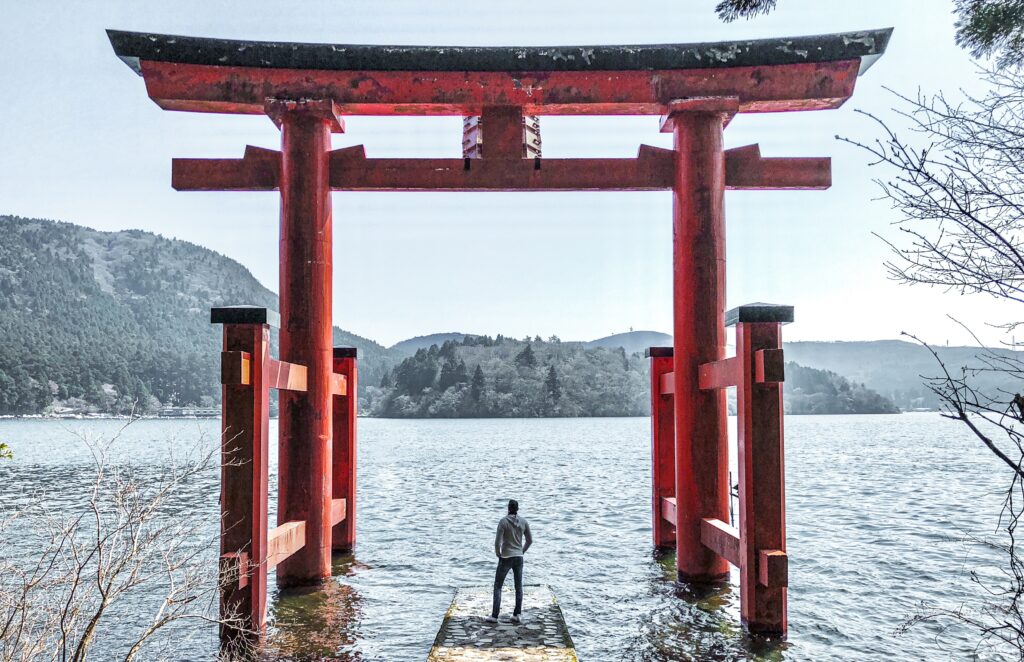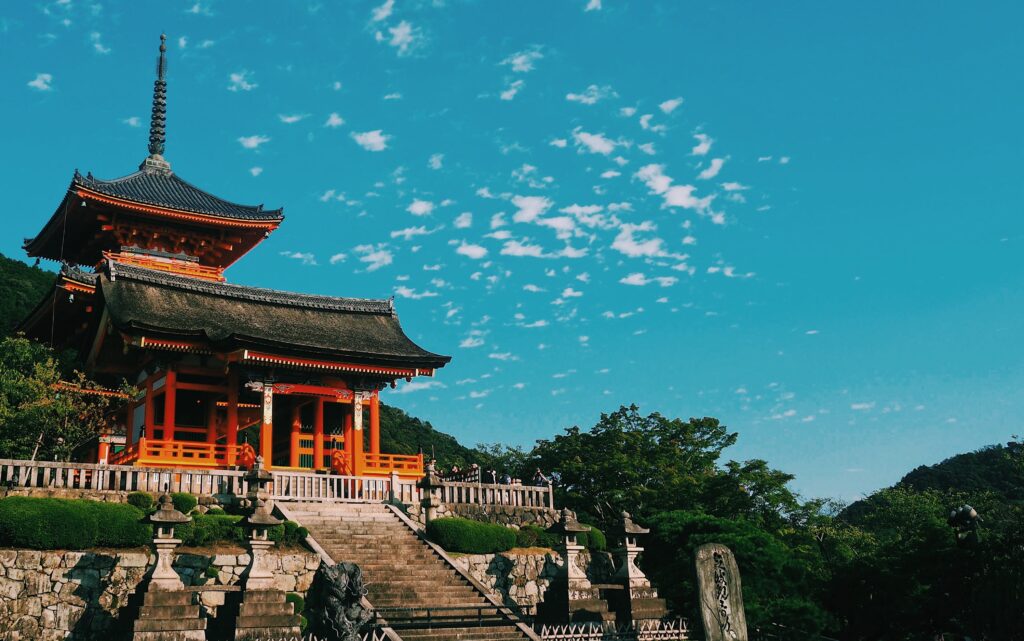5 Japanese philosophies to strengthen the mind. 5 Japanese philosophies that strengthen the mind! Zen Buddhism, Wabi-sabi, Mujo, Bushido and Ikigai. Japanese philosophies have long been practiced to strengthen and enrich the mind. Japanese philosophies especially attract the attention of people who are curious about Japanese culture and seek mental comfort. From Zen Buddhism to Bushido, the code of honor of the samurai, these ancient teachings give us the wisdom and strength to face life’s challenges.
Core components of Japanese philosophy include harmony with nature, the importance of traditions passed down through generations, self-discipline, loyalty, and honor. In terms of harmony with nature, this refers to the idea that individuals should strive to live in balance and harmony with the natural world, recognizing and respecting its cycles and dualities. This is a key element in Shinto tradition, which emphasizes the interconnectedness of all living things and the importance of protecting natural resources and ecosystems.

Understanding and cooperation between people is another essential aspect of Japanese philosophy, particularly in terms of relationships between family members and other members of the community. Mutual respect and appreciation for shared values and traditions is deeply integrated into Japanese culture and is seen as the key to resolving conflicts in a peaceful manner. Loyalty, honor and self-discipline are also highly valued, with people expected to strive for excellence in all areas of their lives.
In addition to being integral to Japanese culture and social interaction, many of these philosophies have also been used as guiding principles for other areas of life, including morality, politics, and education. For example, the idea of harmony with nature is often seen as having implications for how humans should treat the world around them, while the concept of honoring traditions encourages people to respect the beliefs and values of those who came before them.
5 Japanese philosophies to strengthen the mind. Zen Buddhism, Wabi-sabi, Mujo, Bushido and Ikigai.
We have prepared our article about zen buddhism, wabi-sabi, mujo, bushido and ikigai, which form the basis of Japanese culture and philosophies.
1- Zen Buddhism

Zen Buddhism is a form of Mahayana Buddhism that was developed in China during the 6th century. It is traditionally associated with elements of Chinese, Indian and Southeast Asian influences. It is known for its emphasis on both meditation and insight. It is also highly valued for its emphasis on living in the present moment and understanding the underlying nature of being.
It emphasizes the importance of seeking personal spiritual growth through meditation. By focusing on the present moment and being mindful of thoughts and feelings our spiritual depth can be enhanced. It also encourages us to deeply reflect on our lives, on events that have taken place and on the significance of religion. This can help us understand the importance of accepting life’s ups and downs and of letting go of attachments to material possessions and to ego.
It also emphasizes the importance of connecting with nature. It is believed that by being present in nature and understanding how we deeply interact with it, we can deepen our spiritual understanding. Additionally, connecting with nature can help us cultivate positive emotions such as happiness and peace.
It is also known for it’s reliance on the practice of koans. A koan is a paradox or a seemingly absurd question that requires contemplation to solve. Koans bring us to a point of contemplation where we experience the naturalness of life and insight into the nature of reality. Solving a koan can bring about a state of inner clarity and open the door to the experiencing of wisdom.
It is distinct from other forms of Buddhism and heavily emphasizes the importance of meditation, insight, and being present in the moment. It is through this practice that Zen Buddhists can deepen their spiritual understanding and cultivate inner peace and wisdom. It is a Mahayana school of Buddhism that emphasizes meditation and awareness of the present moment.
Zen’s goal is to achieve enlightenment through the practice of meditation and intuitive wisdom. It is based on the teachings of the historical Buddha and the philosophical texts of the Mahayana Buddhist tradition. Zen emphasizes the use of meditation as a means to awaken the individual to the true nature of reality and to develop an understanding of the interconnectedness of all things. Zen also teaches that understanding the true nature of reality can lead to the end of suffering and the attainment of liberation.
You may be interested in: What are the 7 Deadly Sins? 7 Deadly Sins in Christianity!
2. Wabi-sabi

Wabi-Sabi is a Japanese aesthetic and world view focused on the acceptance and celebration of imperfection and transient beauty. This philosophical tradition is often represented in Japanese art, architecture, and design. It is inherently linked to nature and the organic, emphasizing the impermanence of life and objects. It can be considered a way of appreciating one’s environment and relating to the cycles of life.
The concept of Wabi-Sabi originates from Buddhist teachings, specifically that of Zen, and has evolved and been shaped through the centuries. It involves an appreciation for the imperfect and incomplete, finding beauty in the mundane and simple. It attempts to focus on being thankful for the “here and now”, looking at life from what is, as opposed to what could or could not be.
In terms of aesthetics, Wabi-Sabi is often made up of natural materials, free of embellishment and adornment that come with time and patina through aging. Obscurity and asymmetry are celebrated and the concept involves a humble attitude and appreciation for the simplest of creations.
In terms of design, Wabi-Sabi can be thought of as an attitude of self-reflection and understanding of the interconnectedness of all living things, rather than an aesthetic style. It involves creating with a deep respect for materials and taking an emotional approach. It often has an inclination toward local production, which may be seen in rustic, traditionally-textured surfaces that hint at craftsmanship. It is often characterized by movement, such as a visible joinery lines and slightly mismatched parts.
It is pervasive throughout many aspects of Japanese culture such as design, architecture, and cuisine. It is seen in the tradition of tea ceremonies and the aesthetics of organization systems. Its influence can be felt in certain landscaping techniques and its sense of wistful reverie can be found in much of Japanese literature.
To many, it may be considered a spiritual practice about being mindful of our environment and place in the world. Its essence is about accepting the beauty of fragility and imperfection and celebrating the passing of time. A kind of austerity emerges in the process, that is both minimal and patient.
It is a way of understanding life and appreciating what it has to offer—no matter how imperfect it may be. It embraces the passing of time, which is why it carries with it an undeniable beauty that is both contemplative and reflective.
You may be interested in: 8 Tips for Beginners to Meditation
3. Mujo

Mujo philosophy is a series of ancient Japanese beliefs that emphasizes the idea of “no constant self.” It is based on the understanding that everything in our world is impermanent and is constantly in flux, and that therefore, a “self” can never exist as a fixed, unchanging entity. The term “mujo” itself is derived from two Japanese words, which mean “without permanence” and “without essence.”
It has been used in Japan for centuries to provide solace and peace of mind to people who struggle with the idea that they may not be the same “self” as they once were. It helps to ease the stress of daily life by allowing people to exist in the present moment and not focus on the illusions of permanence that can be created by clinging onto their past selves.
The concept of mujo is closely associated with Buddhist philosophy, which emphasizes the idea that the only thing that is really real is the present moment. Buddhist philosophy also bridges these two concepts together by suggesting that a sense of self can be defined by the absence of attachment to an idea of a fixed identity. This idea is closely related to the concept of mujo in that it doesn’t advocate for the creation of an unchanging self, but instead suggests that we are capable of new thoughts and feelings as we move through present-moment experiences.
It is not only applicable to individuals but also to the world we live in. We cannot hold onto the idea that anything we experience or partake in will remain permanent. Life is comprised of change and is driven by impermanence. By embracing this philosophy, we can use it to give ourselves the opportunity to live our lives with acceptance and understanding.
By understanding and accepting the impermanence of our lives, we can find peace in the present moment and not worry about trying to hold onto an idea of a fixed identity. This can provide us with resilience and an increased level of satisfaction in our daily lives. It can also help us to be more accepting of the changes that occur in life and to strive to make the most of them.
Despite its ancient origins, mujo philosophy is still relevant in our modern age. Its tenets can be applied to a variety of situations and can provide us with a sense of comfort and freedom in the face of uncertainty. Ultimately, it challenges us to embrace life’s impermanence and to strive to embrace all forms of change as a source of growth and evolution.
You may be interested in: 10 tips to get rid of loneliness and socialize!
4. Bushido

Bushido, otherwise known as the way of the samurai, is a set of ethical principles that have been central to Japanese society since the 12th century. The philosophy calls for unswerving loyalty, moral excellence, and courage in the face of adversity. It is deeply rooted in the teachings of Confucius, a Chinese philosopher whose works had a profound influence on the Japanese culture. It also draws from the code of chivalry from medieval Europe, among other sources.
At its heart, it is an interpretation of the eight virtues taught by Confucius—benevolence, righteousness, courtesy, wisdom, sincerity, loyalty, filial piety, and courage. These are believed to be the core values of what makes a good person, and a true samurai. It stresses that it is not enough to simply be loyal and courteous, but also to be brave and willing to face death in service of one’s master or cause. This idea is closely tied to the samurai belief in the immortality of the soul and the importance of being remembered after death.
Beyond just being a set of personal morals and values, it was also integral in understanding Japan’s military hierarchy, which was focused more on honor and obedience than on a formal rank system like in the West. The ideal samurai was expected to be a master of military strategy, martial arts, and personal conduct. He would show respect for his lord and for his peers, and be incredibly loyal to both. The samurai was expected to do whatever was necessary to protect his lord and remain faithful, even to the point of death.
It was also a major influence in the development of the martial arts, in particular the samurai martial art, kenjutsu. Kenjutsu focuses on the principles of self-mastery, respect for the opponent, and accuracy and speed. There is also a spiritual element, which emphasizes focus and a state of inner calm and confidence. It has a lot to do with the emphasis on discipline and the importance of having a code of honor, which are among the key aspects of kenjutsu.
Throughout its history, it has been a major inspiration for Japanese culture and, for centuries, has been embraced by many as the way in which a samurai should lead his life. Even today, it remains an important part of Japanese martial culture, influencing films, literature, and even religion. Although it is no longer a practical code of conduct, it still serves as a source of moral guidance and has had a tremendous impact on the development of the martial arts.
5. Ikigai

Ikigai is an ancient Japanese philosophy that is believed to be the secret to a happy and meaningful life. It is said to bring clarity, purpose and direction to our lives. The concept of ikigai is based on the idea that everyone has a reason to live and something that they are passionate about. As such, it can be seen as a motivating factor that helps us to identify our life’s goals and purpose.
Central to ikigai philosophy is the idea that we should strive to live a balanced life. This means we should work hard but also make time to enjoy activities that bring us pleasure and fulfilment. In order to achieve this balance, it suggests that we should think about what we value in life, what makes us feel alive, what we can be of service to and what we can be paid for doing. This helps us to focus on the activities that bring us joy and helps us to stay motivated and on track.
Furthermore, it encourages us to think about how our individual skills and passions fit into the bigger picture. Through self-reflection, we can discover and appreciate the unique gifts that we can share with the world. It teaches us that to be truly successful, we must think beyond our personal achievements and focus on how our work can benefit the greater good.
It promotes a positive and mindful outlook on life. It encourages us to live in the moment and take time to appreciate the simple pleasures of life. This helps us to keep our priorities straight and stay focused on achieving our goals.
Overall, it is an ancient philosophy that teaches us about the importance of balance, self-reflection and gratitude. It can be seen as a compass that provides individuals with guidance and purpose that is unique to each individual’s situation. Through mastering the principles of this philosophy, it is possible to lead a truly fulfilling life.

